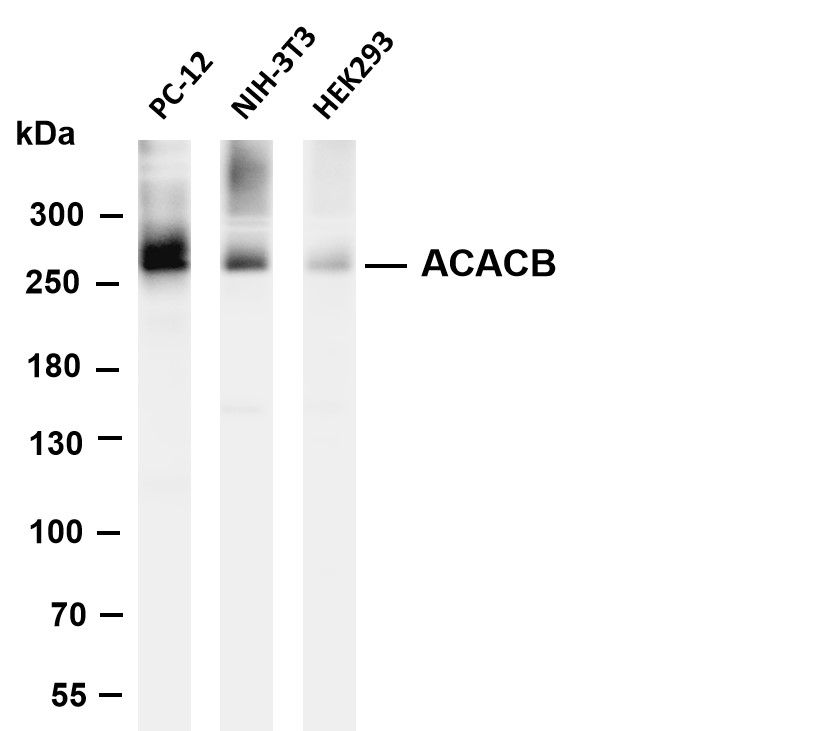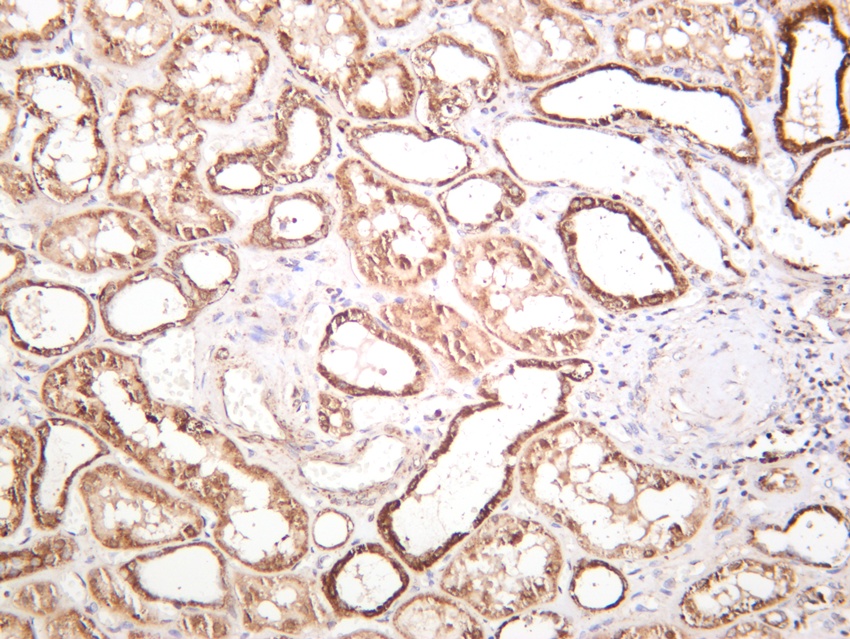| Product Name | ACACB Rabbit mAb |
| Background | Acetyl-CoA carboxylase (ACC) is a complex multifunctional enzyme system. ACC is a biotin-containing enzyme which catalyzes the carboxylation of acetyl-CoA to malonyl-CoA, the rate-limiting step in fatty acid synthesis. ACC-beta is thought to control fatty acid oxidation by means of the ability of malonyl-CoA to inhibit carnitine-palmitoyl-CoA transferase I, the rate-limiting step in fatty acid uptake and oxidation by mitochondria. ACC-beta may be involved in the regulation of fatty acid oxidation, rather than fatty acid biosynthesis. There is evidence for the presence of two ACC-beta isoforms. [provided by RefSeq, Jul 2008] |
| Reactivity | Human; Mouse; Rat |
| Source | Rabbit, IgG Kappa |
| Applications | WB; IHC; IF; IP; ELISA |
| Dilutions | WB: 1:2000-1:10000; IHC: 1:1000-1:4000; IF: 1:200-1:1000; IP: 1:50-1:200; ELISA: 1:5000-1:20000 |
| Purification | Protein A |
| Formulation | PBS, 50% glycerol, 0.05% Proclin 300, 0.05%BSA |
| Storage and Stability | -20°C/1 year |
| MW (kDa) | Calculated: 227; Observed: 265 |
| UniProt Accession # | O00763 |
| Protein Name | ACACB |
| Gene Name | ACACB ACC2 ACCB |
| Gene ID | 32 |
| Other Names | ACC-beta |


